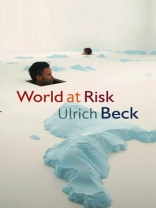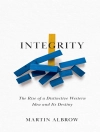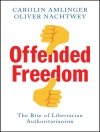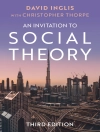Twenty years ago Ulrich Beck published
Risk Society, a book that called our attention to the dangers of environmental catastrophes and changed the way we think about contemporary societies. During the last two decades, the dangers highlighted by Beck have taken on new forms and assumed ever greater significance. Terrorism has shifted to a global arena, financial crises have produced worldwide consequences that are difficult to control and politicians have been forced to accept that climate change is not idle speculation. In short, we have come to see that today we live in a world at risk.
A new feature of our world risk society is that risk is produced for political gain. This political use of risk means that fear creeps into modern life. A need for security encroaches on our liberty and our view of equality.
However, Beck is anything but an alarmist and believes that the anticipation of catastrophe can fundamentally change global politics. We have the opportunity today to reconfigure power in terms of what Beck calls a ‘cosmopolitan material politics’.
World at Risk is a timely and far-reaching analysis of the structural dynamics of the modern world, the global nature of risk and the future of global politics by one of the most original and exciting social thinkers writing today.
Table des matières
Acknowledgements vii
1 Introduction: Staging Global Risk 1
2 Relations of Defi nition as Relations of Domination: Who Decides What is and is Not a Risk? 24
3 The ‘Cosmopolitan Moment’ of World Risk Society or: Enforced Enlightenment 47
4 Clash of Risk Cultures or: The Overlapping of the State of Normalcy and the State of Exception 67
5 Global Public Sphere and Global Subpolitics or: How Real is Catastrophic Climate Change? 81
6 The Provident State or: On the Antiquatedness of Linear Pessimism Concerning Progress 109
7 Knowledge or Non-Knowing? Two Perspectives of ‘Reflexive Modernization’ 115
8 The Insurance Principle: Criticism and Counter-Criticism 129
9 Felt War, Felt Peace: Staging Violence 140
10 Global Inequality, Local Vulnerability: The Conflict Dynamics of Environmental Hazards Must be Studied within the Framework of Methodological Cosmopolitanism 160
11 Critical Theory of World Risk Society 187
12 Dialectics of Modernity: How the Crises of Modernity Follow from the Triumphs of Modernity 212
Notes 235
References and Bibliography 243
Index 261
A propos de l’auteur
Ulrich Beck is Professor of Sociology at the University of Munich.












